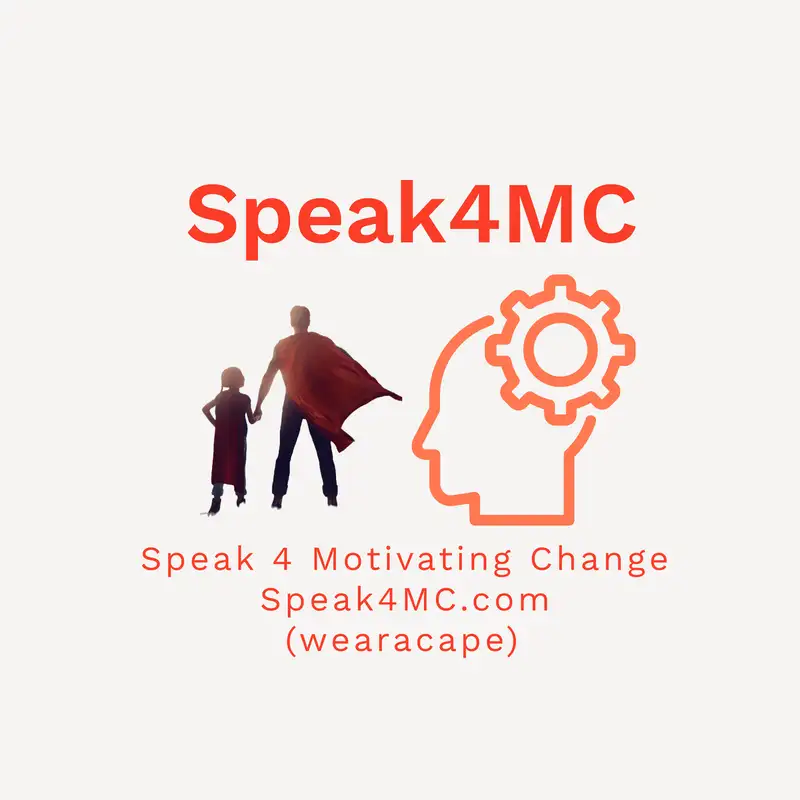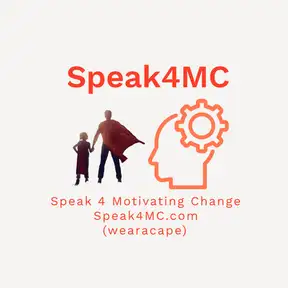Bonus Episode: Do you have Compassion, Sympathy, or Empathy?
Spoiler alert: The answer is Yes, No, and Maybe
Anyone who knows me or Speak4MC understands how passionate I am about empathy. So much so, I frequently speak nationally about the role empathy has on change and recently, I started a podcast called, "Empathy Here, Not There."
While the feedback has been positive, I have received many comments about what empathy means to them, its true definition, and the sometimes conflicting roles of values, sympathy, and compassion.
As a result, let's take a deep dive together and explore the nuances of practicing empathy.
Compassion
Definition and Characteristics: Compassion is a deep awareness of the suffering of another coupled with the desire to alleviate that suffering. It’s not just about understanding someone’s pain, but also feeling motivated to take action to help relieve it. Compassion is very action-oriented.
Example: If you see someone struggling with a heavy load and you feel moved to offer help, that’s compassion in action.
Real-life Example: Imagine witnessing a neighbor’s house on fire and feeling compelled to organize a community effort to provide them with clothing, food, and temporary shelter. This act of compassion helps alleviate their immediate suffering and shows solidarity in a time of crisis.
Sympathy
Definition and Characteristics: Sympathy is the feeling of pity or sorrow for someone else’s misfortune. It’s about feeling for others but not necessarily understanding their situation deeply. There’s often an emotional distance in sympathy, as it doesn’t require personally sharing the other person’s feelings.
Example: A common example is hearing about a friend’s loss and feeling sad for them. You acknowledge their suffering but may not take any action beyond feeling sorry for them.
Real-life Example: Consider hearing about a colleague’s illness and sending them a get-well-soon card. You feel sorry for their situation and want to show support, but you don’t deeply engage with their experience beyond expressing your condolences.
Emotional Empathy
Definition and Characteristics: Emotional empathy is the ability to share and truly feel another person’s emotions. It involves experiencing the same emotions as another person, creating a deep emotional connection.
Example: Imagine seeing a loved one cry and feeling their sadness as if it were your own. That’s emotional empathy at work.
Real-life Example: Picture your child coming home from school, devastated after being bullied. As they describe their experience, you feel a surge of sadness and anger as if you were the one being bullied. This emotional connection helps you understand their pain deeply and comfort them effectively.
Cognitive Empathy
Definition and Characteristics: Cognitive empathy, also known as perspective-taking, is the ability to understand another person’s emotions and thoughts without necessarily sharing them. It involves an intellectual understanding of another person’s mental state and emotions.
Example: For instance, listening to a colleague describe their stress about a project deadline and understanding why they feel that way, even if you don’t feel stressed yourself, demonstrates cognitive empathy.
Real-life Example: Imagine your partner is upset because they feel overwhelmed with household responsibilities. While you might not share their exact feelings, you take the time to understand their perspective and help find solutions to balance the workload, demonstrating cognitive empathy.
The Role of Personal Morals and Values
Definition and Characteristics: Our personal morals and values greatly influence how we express compassion, sympathy, empathy, and cognitive empathy. These internal guides shape the extent to which we are motivated to help, feel sorrow, share emotions, or understand another’s perspective.
Example: A person who values selflessness might be more inclined to take compassionate action, while someone who values emotional boundaries might lean more towards cognitive empathy.
Real-life Example: In a work setting, someone who values teamwork and collaboration might offer to assist a struggling team member, driven by compassion. Meanwhile, another person who values independence might provide guidance on how the team member can overcome challenges on their own, showing cognitive empathy.
Justification or Condoning of Actions
Definition and Characteristics: How we justify or condone our own actions or those of others can affect our empathetic responses. If we condone harmful actions, we might suppress our empathetic responses to avoid cognitive dissonance.
Example: For instance, if someone justifies harsh disciplinary actions by believing they are necessary for teaching discipline, they may feel less emotional empathy towards the suffering caused by those actions.
Real-life Example: Think about a parent who uses strict rules to maintain order at home. They might justify this by believing it builds character in their children. As a result, they might overlook the emotional distress their children experience, thereby suppressing emotional empathy to maintain their belief in the necessity of discipline.
To summarize, understanding the nuances of compassion, empathy, and sympathy can help us respond more effectively to others' emotional needs and foster meaningful connections.
I hope this deep dive into empathy has been helpful. If you have any thoughts or questions, feel free to reach out.
Don’t forget to subscribe and stay tuned for our upcoming episodes on empathy in politics, social media, mediation, and sports.
Thank you for joining me on this journey. Until next time, remember, empathy starts here but extends far beyond.
Disclaimer
*Statements on this blog reflect the author's personal opinions and do not represent any other person, company, or organization. The purpose of this blog is to provide general knowledge and to raise awareness of tools, techniques, people, and organizations that bring about positive change. The reader is strongly encouraged to perform independent research about the topics discussed.

